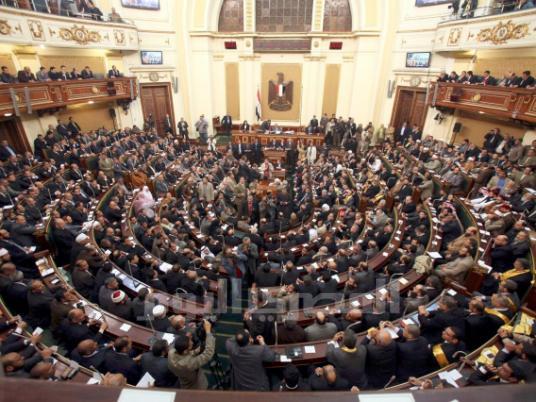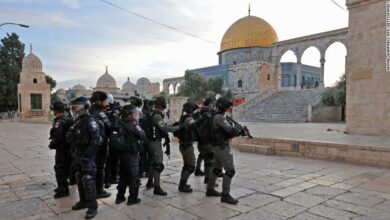
Both houses of Parliament during a joint session Sunday agreed on the criteria for choosing the members of the constituent assembly tasked with writing Egypt’s new constitution.
According to the agreement, 50 percent of the assembly will be members of one of the houses of Parliament, taking into account the ratio of People’s Assembly to Shura Council members.
The remaining half will be selected from outside Parliament.
Every MP will be allowed to nominate members from both houses of Parliament, including him or herself, on the condition that the total number of MPs nominated does not exceed the 50 percent quota.
Regarding the members from outside Parliament, it was agreed that the MPs would make their choices in a parliamentary joint meeting on Saturday.
MPs can choose from among public figures and representatives of key institutions. The winners will be those able to garner 50 percent plus one vote in both houses of Parliament.
An additional 20 “reserve” members will be chosen for each category — inside and outside Parliament — as potential replacements for members of the constituent assembly who decline the appointment.
People’s Assembly Speaker Saad al-Katatny said Parliament’s technical secretariat will begin receiving nominations from syndicates, institutions and others until Wednesday at noon.
“We hope all political and social groups in Egypt will be represented [in the constituent assembly],” he said.
Several representatives from political and revolutionary youth groups announced their rejection of the proposed plan, saying Islamists want to “dominate” the constituent assembly.
Ahmed Taha al-Noqr, media spokesperson for the National Association for Change, said the NAC will file a lawsuit to invalidate a constituent assembly produced by the approved plan.
He said that the plan violates Article 60 of the Constitutional Declaration, which states that Parliament should “elect” members of the constituent assembly. Arabic dictionaries, he said, show that the word “elect” is used when one elects “others,” not “oneself.”
Noqr added that constitutional law experts agree that Parliament is an authority created by the constitution, so it cannot participate in the process of constitution writing, and Parliament’s participation in constitution writing is furthermore an encroachment on the powers of the executive and judicial authorities.
Noqr also said that the Constitutional Court is currently reviewing cases that contest the validity of the parliamentary elections, which may nullify the elections and therefore the membership of MPs and the process of constitution writing.
Ahmed Maher, general coordinator for the April 6 Youth Movement, described the plan for constitution writing as illogical because the parliamentary majority should not be reflected in a constitution that represents the whole of Egypt.
Haitham al-Khateeb, media spokesperson for the Union of Revolution Youth, said the union is satisfied with the plan, but wondered whether the members from outside Parliament will be indeed represent all factions and groups in society.
Khaled Tleima, a member of the 25 January Revolution Youth Coalition, said the plan demonstrates how Islamists wish to dominate the process of constitution writing, abusing their majority in Parliament.
Mohamed ElBaradei, former chief of the International Atomic Energy Agency, criticized the plan, saying the legitimacy of the Parliament is questionable in the first place.
On Twitter, he said, “A parliament with questionable legitimacy will elect a panel half the members of which will come from it. But that biased panel will write a constitution for Egypt, not for the majority in Parliament! Constitution is the source of powers, not the opposite … Still lost in a maze.”
In another Tweet, ElBaradei said he is awaiting the Constitutional Court’s ruling on the validity of the parliamentary elections.
The makeup of the constituent assembly has been a contentious point, with secular-leaning groups and Christians fearing the Islamist-dominated Parliament might pack it with conservative thinkers. Divisions also surfaced concerning the balance of power between the executive branch and Parliament, the future role of the military, the role of Sharia and the identity of the state.
Under a tight timetable, once the assembly is put together it has six months to draft the constitution, which will then be put to a referendum within 15 days. Critics say that will make it impossible for the new draft to be subject to extensive public debate.
The Muslim Brotherhood’s Freedom and Justice Party had said it wanted 40 members of the assembly to be from Parliament and the remaining 60 to include legal and constitutional experts and members of unions. Before the vote on Saturday, however, it changed its proposal and said the assembly should be half lawmakers and half legal and constitutional experts and union members.




